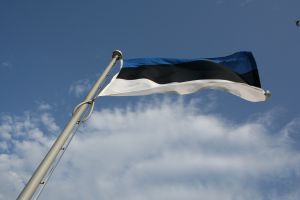

LAST WEEK we wrote about the European Commission's vice president, Siim Kallas [1, 2]. He is too close to Microsoft and he even gives talks at Microsoft events, aside from his meetings with the company's CEO. We also mentioned Kallas in the context of Microsoft under [1, 2] when he sheltered lobbyists.
On this background, recent remarks by Siim Kallas, the European Commission's Vice President in charge of administration, show a worrying lack of awareness of Open Standards and Free Software in parts of the Commission. In a high-level press conference (Flash) on November 19 in Malmö, Sweden, Kallas said that he considered Free Software a problem for "business continuity". He likened Free Software to a Wikipedia article, saying that "in Wikipedia text, you see that there are brackets and footnotes, that information should be confirmed, or should be checked [...], and if you use open source, if you use the same logic in operational things, you must have certainty what will happen next."
FSFE is deeply concerned about these remarks. "Mr Kallas is badmouthing a whole sector of the European IT economy", says Gerloff. "Either Mr Kallas is actively hostile to Free Software and Open Standards, or he is entirely ignorant about them. Both is simply not justifiable in a Vice President of the European Commission in charge of the EC's administration."
This kind of linguistic misunderstanding about the implications of openness wouldn't matter too much were it not for the fact that this particular Estonian is Siim Kallas, vice president of the European Commission: for someone so senior to have such a confused idea about what open standards involve, is potentially highly damaging for IT in Europe.
An Estonian government project to safeguard the country's Internet infrastructure will publish some of the tools it is developing as open source, using the European Union Public Licence (EUPL).
Jason Hiner’s Honors:
Microsoft Most Valuable Professional (MVP) 2009 Microsoft Most Valuable Professional (MVP) 2008 Microsoft Most Valuable Professional (MVP) 2007 Microsoft Most Valuable Professional (MVP) 2006 Microsoft Most Valuable Professional (MVP) 2005 Microsoft Most Valuable Professional (MVP) 2004 Cisco Certified Networking Associate (CCNA) Microsoft Ceritified Systems Engineer (MCSE) Microsoft Certified Professional + Internet (MCP+I) CompTIA Network+ CompTIA i-Net+ Sterling Sentinel Journalism Scholarship
“Elmar Geese, Chair of Linux-Verband, a German association of Free Software businesses with 80 members, shows himself surprised at Mr Kallas' remarks.”FSFE is deeply concerned about these remarks. "Mr Kallas is badmouthing a whole sector of the European IT economy", says Gerloff. "Either Mr Kallas is actively hostile to Free Software and Open Standards, or he is entirely ignorant about them. Both is simply not justifiable in a Vice President of the European Commission in charge of the EC's administration."
Elmar Geese, Chair of Linux-Verband, a German association of Free Software businesses with 80 members, shows himself surprised at Mr Kallas' remarks. "We do not know who advised Mr Kallas to say these things. To me, this sounds like the propaganda of fear, uncertainty and doubt from 10 years ago. We invite Mr Kallas to inform himself about the Free Software industry. I am sure this will change his mind."
Jan Wildeboer, Red Hat EMEA Evangelist, rejects Kallas' remarks. "Compared to many proprietary alternatives, Free Software shows that it not only saves money but also delivers high quality solutions. The use of Free Software in mission-critical environments all over the world is proof of its quality."
Such statements from the EC give a boost to the critics of the new version of the EIF. FSFE argues that the original EIF has served well as a guideline to the European public sector. Even though it is only a recommendation, it has become an important reference in Europe and beyond. If it needs to be revised, the new document should improve interoperability through reliance on Open Standards, rather than promote proprietary software and specifications. The Commission should go back to the consultation document and work from there, making sure that this time comments from all sides are properly addressed.
Red Hat's Wildeboer shares the criticism: "It is good to see that EIFv2 is under more scrutiny now. We need a strong focus on interoperability based on Open Standards. The leaked draft version shows how a lack of transparency can hurt that goal. Now is the time to ask some serious questions. I fully trust the Commission to reinstate the goals of EIFv1. Open Standards and Open Specifications are key to interoperability."
FSFE's President Karsten Gerloff argues: "If the Member States of the European Union want to preserve the credibility of European institutions, they should reject the current draft of the EIF. Instead, they should help the Commission to build a better one that puts Open Standards front and centre."
Verbatim copying and distribution of this entire article is permitted in any medium, provided this notice is preserved.
________
[1] Estonian DDoS attacks "highly organised" but spontaneous
Such a confederation was identified in the case of the Dark OwneD Mafia cracker network, 110760 five of whom were recently arrested in Spain. It might indeed explain why only one person has so far been prosecuted in connection with the Estonian attacks.
The development brings ID-card software to Mac OS and to the majority of the Linux distributions. For Linux EIC aims to get it into the installation packages.
The attack, which ended Tuesday, was minimally disruptive, according to Hillar Aarelaid, manager of Estonia's Computer Emergency Response Team (CERT). He described it as an "ordinary DDOS" (distributed denial of service) attack in which the news agency's servers were flooded with Internet traffic, in an attempt to crash them.
"When you are a highly Interneted [sic] country like we are, then these kinds of attacks can do very serious damage."
Estonia will propose at a meeting of European Union justice ministers next week that the bloc consider cyber attacks as "acts of terror", Estonian Justice Minister Rein Lang said Thursday.